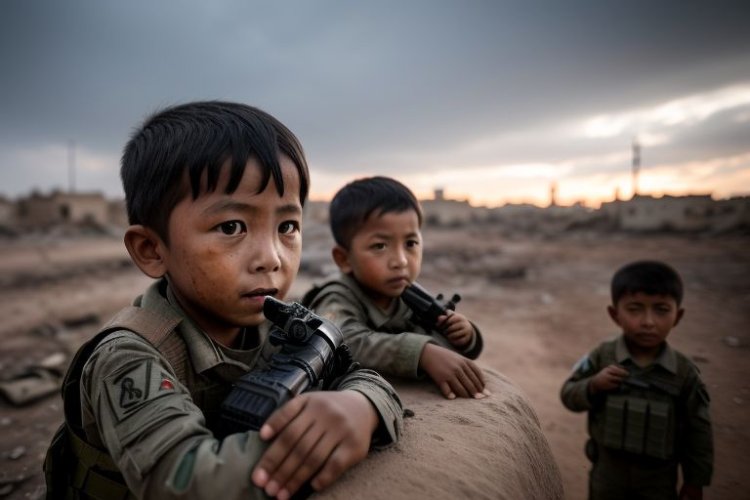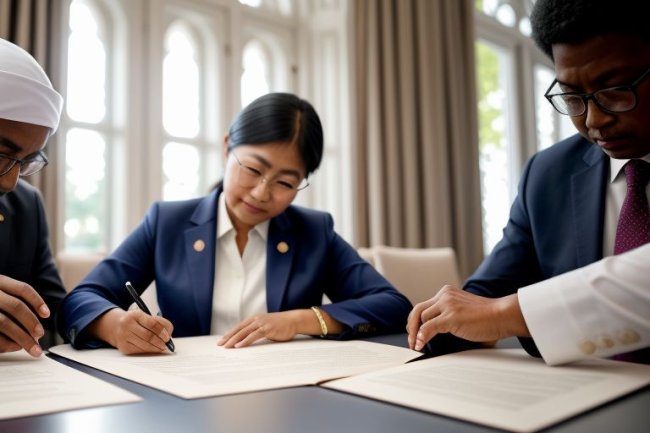CONSEQUENCES OF WAR: Psychological And Emotional Trauma On Individuals And Communities.
War, with its brutality and violence, inflicts physical wounds and profound psychological and emotional trauma on individuals and communities. The psychological impact of war extends far beyond the battlefield, leaving invisible scars that can last a lifetime. War trauma is a deeply personal and pervasive experience that can have a lasting impact on individuals.

Many people, who have been directly exposed to war, whether as combatants or civilians caught in the crossfire, develop symptoms of post-traumatic stress disorder (PTSD). Intrusive memories, nightmares, flashbacks, and a constant state of hyperarousal become part of their daily lives. These symptoms can disrupt their ability to function, maintain relationships, and find meaning and joy in life. Beyond PTSD, depression and anxiety often co-occur with war trauma. A sense of hopelessness, despair, and a lack of interest in once-enjoyed activities might result from the weight of the experiences that have been observed or undergone. Aside from trouble concentrating, other symptoms of emotional discomfort include disturbed sleep.
The impact of war trauma extends beyond the individual, affecting families and communities. Family members of individuals directly affected by war trauma can experience their form of secondary traumatization. As they see their loved ones go through pain, they could battle with feelings of helplessness, remorse, and despair. Family relationships can deteriorate, communication can break down, and the regular operation of the family might be interfered with. At the community level, war’s psychological and emotional trauma reverberates through social structures and support systems.
The shared experiences of violence and loss can fracture communities, eroding trust and social cohesion. Divisions may emerge along ethnic, religious, or political lines, further deepening the wounds inflicted by war. Disrupted social networks and the loss of community resources such as schools, healthcare facilities, and social support services further exacerbate the challenges individuals and families face. The inter-generational effects of war trauma are another significant aspect to consider. Survivors of war trauma may struggle with parenting, as the residual effects of their own trauma impact their ability to provide emotional support and nurture their children effectively. Children growing up in such environments may witness or experience violence, instability, and a lack of safety, which can have profound and long-lasting effects on their development and well-being. The cycle of trauma is perpetuated as the wounds of war are passed from one generation to the next. However, amid the darkness of war trauma, there is also resilience. Individuals and communities demonstrate remarkable strength and the capacity to heal. Coping mechanisms vary among individuals, with some finding solace in social support networks, religious or spiritual beliefs, or engaging in creative outlets such as art, music, or storytelling. These coping strategies provide a sense of connection, purpose, and hope. Promoting mental health support and healing is essential for addressing war’s psychological and emotional trauma. This requires comprehensive systems that are accessible, culturally sensitive, and trauma-informed. Creating a supportive atmosphere increases mental health awareness, lessens stigma, and educates and trains community leaders and healthcare professionals.
People can process and heal from traumatic experiences using evidence-based therapies, including cognitive-behavioral therapy (CBT) and eye movement desensitization and reprocessing (EMDR). Establishing safe environments where people may express their experiences, participate in peer support, and obtain mental health assistance is critical. Integrated care models that combine mental health support with other essential services, such as healthcare and social support, ensure a holistic approach to healing. International organizations, governments, and local communities must collaborate to establish and strengthen mental health services in post-war settings. This includes training and supporting local healthcare providers, integrating mental health into primary healthcare systems, and establishing specialized services for trauma survivors. Research funding can also aid in a better understanding of the long-term impacts of battle trauma and help guide efficient therapies. War’s psychological and emotional trauma leaves indelible scars on individuals, families, and communities.
Understanding the nature and impact of this trauma is crucial for promoting mental health support, healing, and resilience. By addressing the psychological and emotional needs of those affected by war, we can work towards building stronger, more compassionate societies that prioritize the well-being and recovery of individuals and communities torn apart by conflict.




















